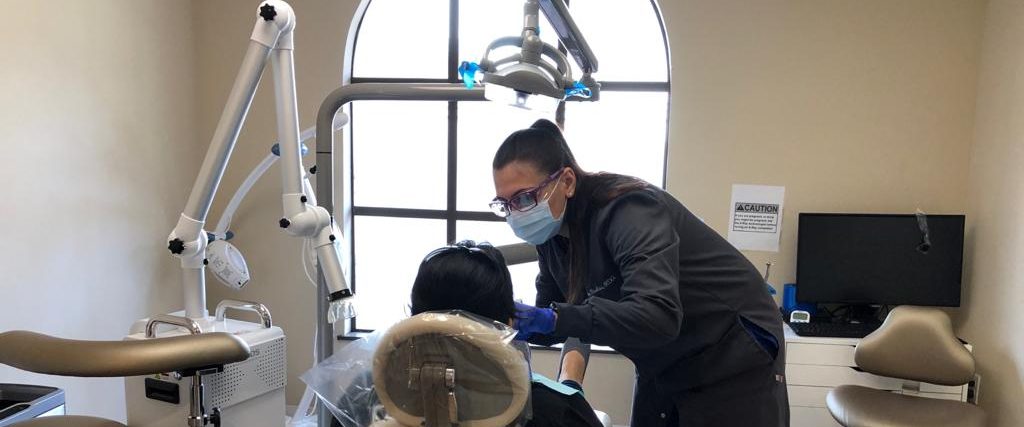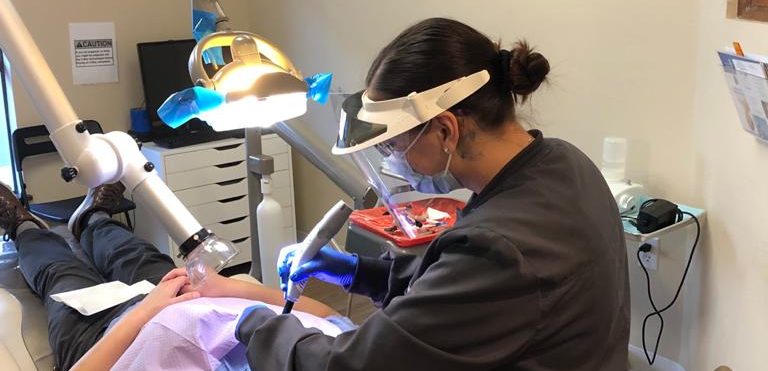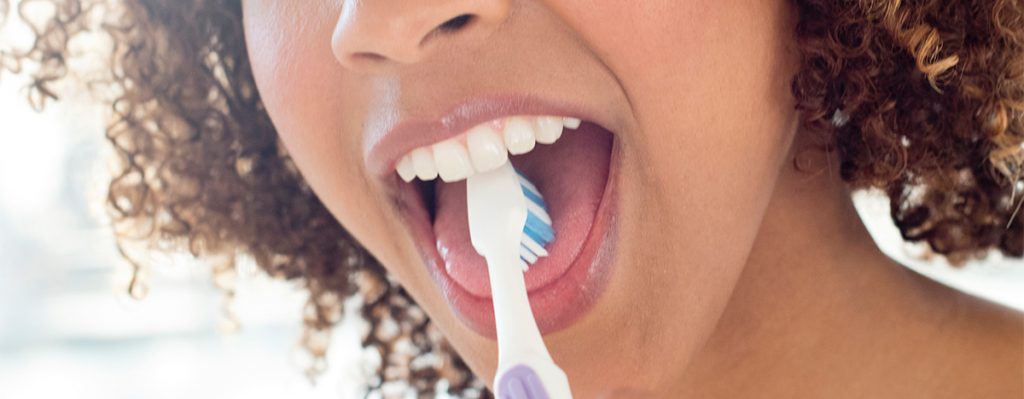Date : 21/09/2020
Did you know there is a right and wrong way to use mouthwash? Believe it or not, many people all over the globe are using mouthwash wrong. However, all it takes is a little diligence and patience to learn how to use it the correct way.
You grab some, swish it around, and spit. Easy, right? Well, hang onto your toothbrush, because it’s not as simple as all that. There is not only a mountain of them to choose from, but different formulas, and a few other things that can trip you up.
So, let’s learn how to use mouthwash the right way.
The Scoop About Mouthwash
Mouthwash is a rinsing agent that is primarily used to freshen your breath after you brush your teeth. It can come in many different forms, and different options feature different active ingredients that will work to increase your overall oral health.
Like therapeutic varieties which contain fluoride, for instance.
Therapeutic mouthwashes fight bacteria, reduce plaque, and can treat gingivitis.
It’s important to note that each one is different, and that some cosmetic mouthwashes are only used to leave you with a fresh taste in your mouth. Which isn’t a bad thing, but you need to know what you want out of yours before you buy it.
Common ingredients
Some common ingredients you’ll find in mouthwash are:
- cetyl pyridinium chloride — for bad breath
- essential oils — plaque control and gingivitis
- chlorhexidine — plaque control and gingivitis
- fluoride — prevents tooth decay
- peroxide — whitening
Can Mouthwash Whiten Teeth?
You might think a quick rinse of the mouth will also whiten your teeth. After all, don't all of them do that?
No, they don't.
In order for one to whiten your smile, it has to contain the right ingredients. Hydrogen peroxide is the magic component that can help improve the color of your teeth. Hydrogen peroxide is a bleaching agent that can be found in toothpaste and mouthwash alike.
So, unless the brand you choose has hydrogen peroxide in it, you won’t be whitening your teeth by using that particular one.
Doesn’t Mouthwash Contain Alcohol?
Many types of mouthwash contain alcohol as the main ingredient. Alcohol is an antiseptic that can be used to kill bacteria and prevent ailments such as gingivitis.
However, there is much debate on whether or not alcohol is a safe ingredient to swish around in your mouth a couple of times a day. Some studies have shown some relationship between those with alcohol and oral cancer.
FDA statement about alcohol in mouthwash
Nobody wants that, and here’s what the FDA had to say about it:
The FDA has commented on alcohol in mouthwashes by saying that the list of ingredients is “generally recognized as safe and effective.”
But we all know, things that are deemed generally safe aren’t always the safest choices to make. So, always make sure to do your research before purchasing a product to ensure its safety. Today, it’s fairly easy to find a mouthwash that does not contain alcohol.
The 4 Benefits of Using Mouthwash
If you want to learn how to use mouthwash the right way, you're probably wondering if there are any benefits to using it.
In fact, there is much debate of late on whether you really need it in your daily oral care routine. Here are some of the most common reasons why people use mouthwash.
1) It prevents cavities
One of the reasons people want to learn how to use mouthwash correctly is because they help prevent cavities. Those containing fluoride help reduce your chances of getting a cavity.
However, it’s important to note that the research on fluoride is inconclusive, and while a certain amount of fluoride shows the prevention of cavities, too much can cause problems. These problems are typically cosmetic but can happen.
2) Antibacterial properties
Therapeutic mouthwash that contains chlorhexidine has strong antibacterial properties. They’re typically used after dental procedures such as a root canal and can ward against gum disease.
If you have a medical condition such as an infection that affects your mouth, your doctor may prescribe a medicated one to treat the issue.
Use caution and always make sure you follow the instructions very carefully before each use.
If you’re buying mouthwash for its antibacterial effects, keep an eye out for labels that state that the product kills and inhibits bacterial production in your mouth. What you want to look for is one that has the words antibacterial.
3) Antiseptic
Antiseptic mouthwash stops bacterial, fungi, and protozoa growth, while also fighting viruses.
These are also the ones typically containing alcohol.
4) It fights bad breath
If you have chronic bad breath, you will want to learn how to use mouthwash the proper way. Bad breath can follow you for a number of reasons, including dehydration, poor diet, and poor dental hygiene. Using the right product will work to cover the bad odor.
It’s important to note that mouthwash will not cure chronic bad breath.
A common misconception is that all of them kill the bacteria that causes bad breath. It is purely used as a mask. If you want to get rid of your bad breath all together, you will need to treat the source.
And your typical over-the-counter mouthwash isn’t going to do that.
Tip: Herbal Mouthwash
Are you reading the back of your mouthwash container and worrying about all of the harsh chemicals and ingredients?
You are not alone.
Many people are starting to go the more natural route with theirs by using something herbal based.
Natural herbs such as clove, peppermint, and rosemary are great antibacterial, antiseptic, and cooling ingredients that are perfect for this task.
You can even look up recipes online to make your own mouthwash, so you know exactly what is in it. In addition, there is a wide range of natural mouthwashes available on the market.
We recommend comparing various products from different retailers before you make your final selection.
How to Use Mouthwash Properly
We know what you’re thinking: How can there be a wrong way to use mouthwash?
Well, believe it or not, many people use it incorrectly. Below is a step-by-step guide that will walk you through how to use it the right way.
Follow the method below for the most successful and effective mouth washing experiences.
1) About selection
If you want to learn how to use mouthwash properly, you have to start by gathering the correct supplies. There are a plethora of types and brands littering the market, so how do you know which one to pick?
We recommend starting with the why’s. Once you know why you want or need it, you can begin shopping for the proper product.
Like we learned above, if you need mouthwash for medical purposes, you will most likely have a prescription that will need to be filled at a pharmacy.
On the other hand, if you have chronic bad breath or are just looking for something to help you feel fresh after a garlic filled meal, there is a bottle of mouthwash out there for you! Just make sure to read customer reviews before making any purchase.
2) How to pour the proper dosage
So many people unscrew the cap and take a swig without measuring or reading the instructions. But not every brand or type is the same, so it’s imperative that you read the directions to ensure proper usage.
You may be wasting a large amount of mouthwash by using too much, or you may not be using enough of the product to make a difference.
3) Don't do this
If you’re new to using mouthwash, one of the trickiest things will be not to swallow while pouring the liquid into your mouth.
Some mouthwashes suggest a large dosage size, which, if you have a small mouth, may trigger your instinct to swallow. But it’s important to resist.
Don’t swallow any of the liquid. Some mouthwashes contain harsh chemicals and alcohol that may upset your stomach if ingested.
4) The action step
Learning how to use mouthwash includes learning how to swish the liquid back and forth in your mouth properly.
Do your best to create fluid movement inside your mouth to ensure the mouthwash is getting in front of and behind your teeth. Make sure that the liquid also reaches your molars, the roof of your mouth, and under your tongue.
Try this:
Above all, read the instructions on your bottle. Some mouthwashes require you to swish the liquid for a full 30 seconds before spitting out. Make sure you are swishing for long enough for the product to be effective.
5) The final step
The last step for how to use mouthwash is to spit and rinse the excess down your drain. Mouthwashes, as we learned above, are not meant to be swallowed. So, make sure you get as much of the liquid out of your mouth as possible.
Some suggest you rinse with water after spitting; however, most don’t.
Keep an eye out on the instructions on your mouthwash to ensure you are completing all of the steps correctly. For example, it’s common for some mouthwashes to recommend no eating or drinking for up to an hour after rinsing.
So be on the lookout for that too.
Keep Your Mouth Healthy
It seems that commercials and advertising have lead us to believe that mouthwash is an essential part of our daily hygiene routine. Brushing, flossing, and using mouthwash is a standard in oral care.
That’s why using these tools the correct way is so important. By following the step-by-step guide above, you can ensure you are getting the most out of your mouthwash.
Take a look at the mouthwash in your bathroom cabinet right now. If it doesn’t say antibacterial or antiseptic on the bottle anywhere, chances are that it can only be used to mask bad breath temporarily.
Always make sure you select the right one for your needs. Luckily, there are so many different kinds of mouthwashes on the market that you won’t have trouble finding one that fits your budget, lifestyle, and any medical needs.
Check with your dentist
Most importantly, remember that no over-the-counter mouthwash can cure gingivitis or chronic bad breath from periodontal disease. If you suspect this condition is the cause of your problems, talk with one of the doctors from Your Caring Dentist Group. Our team can help diagnose and treat your oral health problems.




